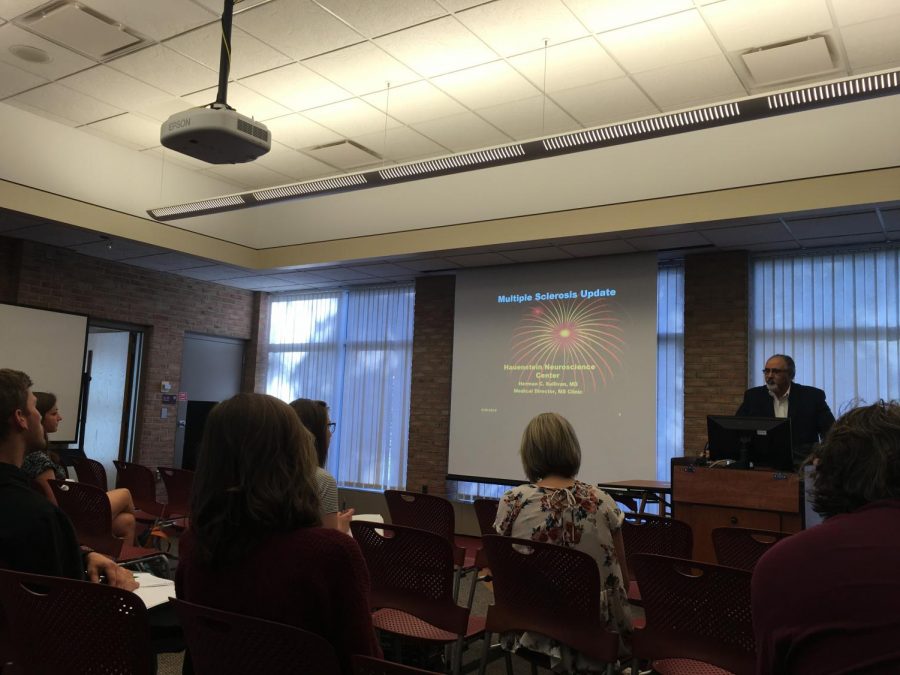Multiple sclerosis researcher presents to philosophy students
Researcher and clinician Herman Sullivan, of Mercy Health, presented on the history and pathology of multiple sclerosis. Photo by David Fitch.
Herman Sullivan, a neurologist from Mercy Health, presented on Multiple Sclerosis (MS) to a crowd of students and faculty members in the Meeter Center Lecture Hall on Monday.
The audience consisted mostly of students in a philosophy course taught by Professor Kevin Corcoran titled “Minds, Brains, and Persons.” Made up of students from the sciences division, the course centers on questions of human consciousness. The talk, organized by Corcoran, touched focused on the history of treating MS, as well as its symptoms and causes.
“I think he’s working on the cutting edge,” said Corcoran, who invited Sullivan to speak for the first time last year. “I was impressed with his ability to communicate the nature of the disease to ordinary, non-specialists,” he said.
During the talk, Sullivan explained his own work with the disease. His work ranges from researching a drug called Linomide decades ago to his work now at a Mercy Health clinic, where he has shifted from a research role to primarily treating patients with MS.
Grand Rapids is an ideal place to continue his close work with the disease, Sullivan said, because it shows significantly higher rates of MS due to its greater distance from the equator. One cause for higher occurrences in such extreme northern or southern regions is thought to be reduced sun exposure.
The symptoms of MS, which can range from cognitive dysfunction to impairment of physical abilities, like walking and touch, are caused as the body’s immune system begins to attack the nervous system. The disease causes the formation of lesions that result the breakdown of a protective layer around nerves.
Sullivan explained the various treatments that have proliferated in the last decades, many of which, he noted, can cost over $100,000. Though there is no way to cure MS, significant strides have been made in managing the disease, including reducing the number of relapses, he said.
Bone marrow transplants, which essentially entail replacing one person’s immune system with another’s, are of special interest to the researcher. They have also been demonstrated to yield significant improvements and come at a much lower price tag than most drugs.
“We’ve done a lot of philosophy, which is kind of a roller coaster for biology people,” said senior biology major Derek Kamp. “And this [lecture] is like a roller coaster for the philosophy people.”







